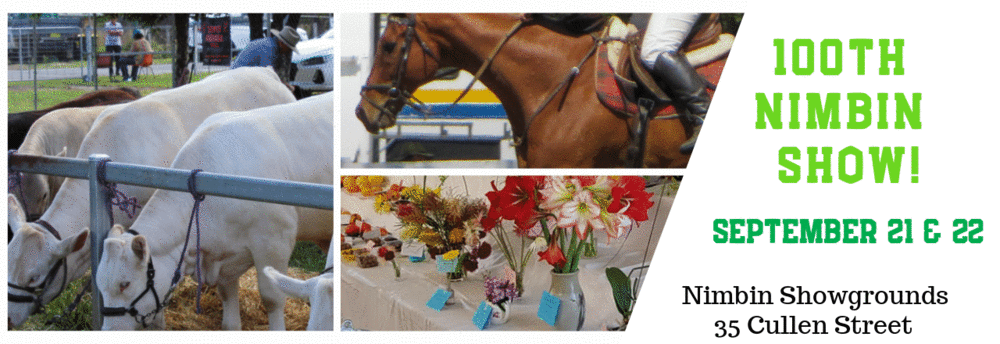SUNDAY PROFILE: Eltham vet Stephen Van Mil helps create world’s first bionic sun bear
Liina Flynn
14 September 2019, 11:00 PM
 Eltham based veterinarian Stephen Van Mil with an orangutan.
Eltham based veterinarian Stephen Van Mil with an orangutan.Eltham based veterinarian Stephen Van Mil is passionate about drawing attention to what's happening to wildlife around the world. His passion for wildlife has taken him to Borneo operate on a sun bear and an orangutan and he has hopes to open a wildlife hospital in the Northern Rivers region.
Operation Sun Bear Borneo is one of the many projects Eltham-based veterinarian Stephen Van Mil is passionate about.
He’s currently in Borneo with a team of specialist vets, implanting a 3D printed pelvis into a mistreated female sun bear called Hitam, who was poached from the wild.
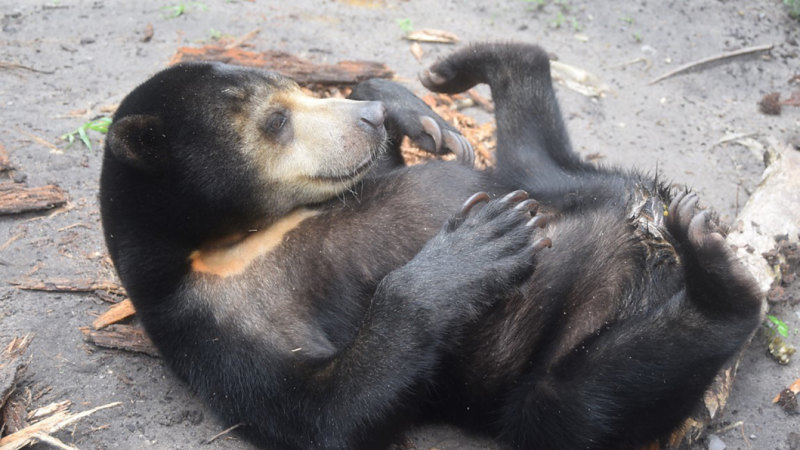
Hitam the sun bear.
Stephen has been a vet for 35 years, and as well as being a day to day vet, operating and treating domestic pets, he works with conservation groups around the world, raising awareness of the plight of our wildlife.
“As a kid, I loved animals,” he said. “As a five-year-old, I told my parents I would be a vet when I grew up. There’s no other option - and that’s what I did.
“Now I do day to day vet work with dogs, cats and horses, but I always wanted to do more for wildlife.”
Born and raised in Perth, Stephen moved to the Northern Rivers five years ago to bring up his daughter here.
Before that, he was a resident vet on the Today Show with Channel 9 for 14 years, where he would do a weekly segment about domestic pets and wildlife.
“While I was in Sydney, I also set up animal hospitals there,” he said. ““It was the stepping-stone that led me to working with conservation groups.”
He has also toured Borneo, Africa and the Amazon, making wildlife documentaries and he saw a need to raise awareness and help wild animals around the world.
“That’s when I co-founded Orangutan Foundation International Australia (OIFA),” he said.
“I worked with Coby Steele who now runs the OIFA care centre in Borneo and we raised over $2 million in two years to buy land and support activities in the care centre.
“It was through the care centre that we found out about the sun bear and I was sent her xrays to look at so I could get it sorted out.
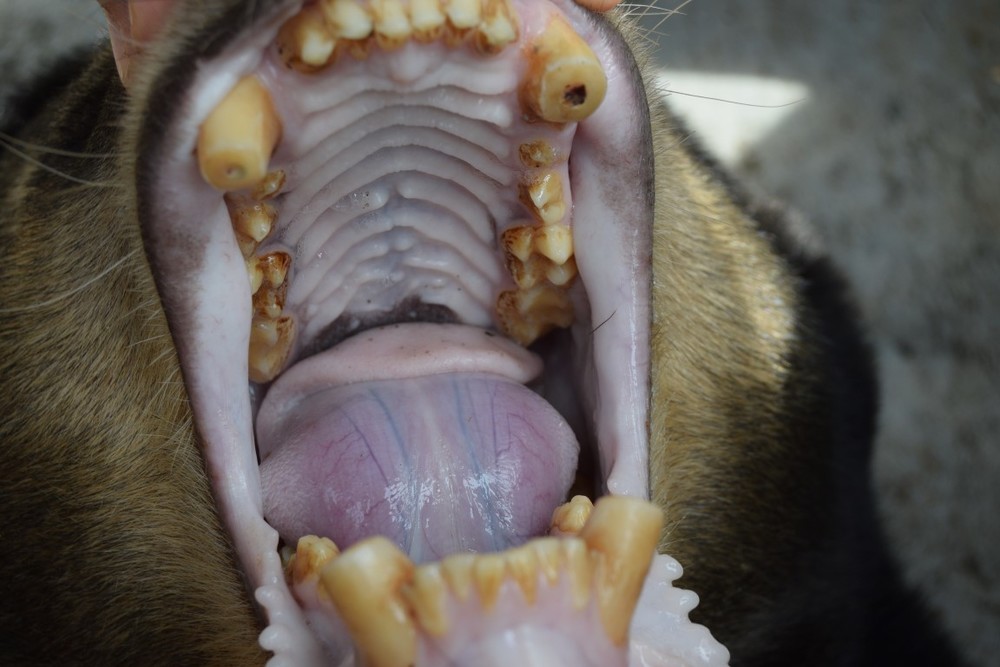
Hitam's filed-down teeth.
“The Sun bear was taken from the wild as a cub. Her mother was killed by poachers who filed her canine teeth down to make her a safer pet and get a better price for her.
“She was sold to a family who fed her and tinned milk, and a s a result she didn’t grow.
“She’s small for a six -year-old bear and her pelvis didn’t develop, so now her pelvic canal is only one centimetre wide and it should be about five centimetres wide.
“She’s in agony and can’t pass faeces.
“I reached out to other surgeons in Australia to see if we could do something for her and got a team of vets together to donate their time to the project - including the head vet at Taronga Zoo in Sydney who has lots of experience and knowledge of anaesthesia and post-operation pain management.
“It seems like a lot of resources and effort to help this one little bear, but it’s a passion of mine to draw attention to the bigger issues about what’s happening to dozens of other bears and orangutans around the world.
“Most people don’t know and don’t care about illegal poaching, and the deforestation for palm oil plantations that’s happening in the animals’ home countries.”
The surgical team’s operation on the sun bear’s pelvis is expected to last three to four hours.
“It’s a triple pelvic osteotomy, where we cut the pelvic bone cut into three parts and rotate the hip out to allow her a more normal sized canal opening,” he said.
“A Melbourne industrial engineer with a passion for wildlife made a custom plate that we’ll put inside her to hold everything in place - making her a bionic bear.
“He made the implant plate by 3D printing it – it’s a world first for a bear.
“No other sun bear in the world has this and never will again – it’s pretty cool.
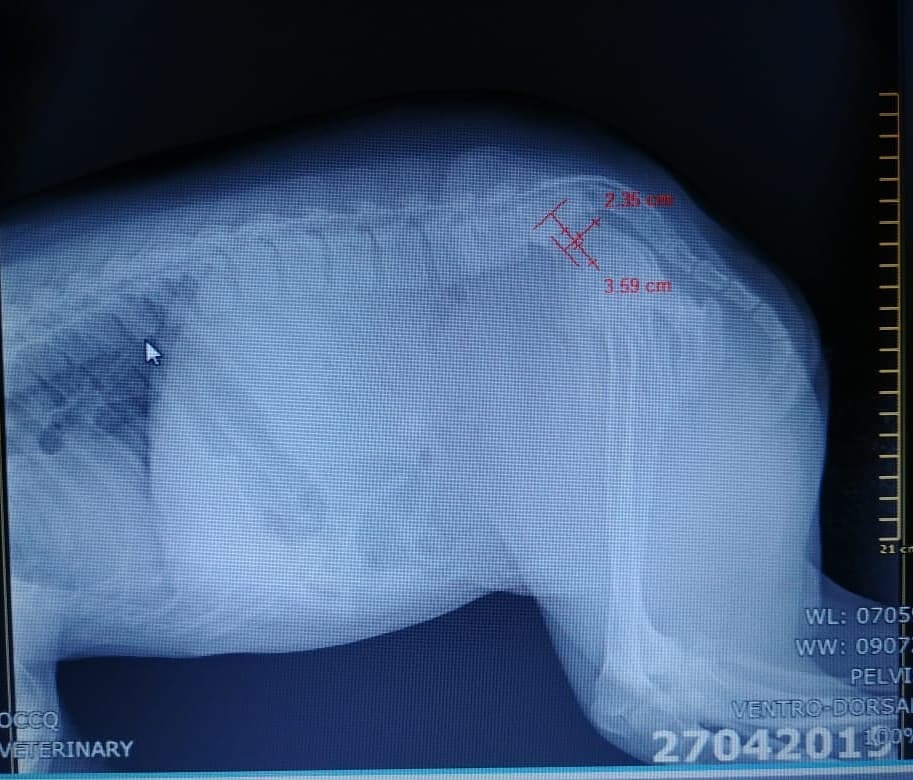
Xray of Hitam's pelvis.
“It will give her quality of life - she has 15-20 years of life left and hopefully we can draw global attention to the animals’ plight.”
Stephen wants to see changes happen in countries across the world to stop illegal poaching of animals.
“In Kenya, the government changed the law to be immediate death for poachers and it moved the illegal trade to other African countries.
“We need to see stronger laws and enforcements brought in in Indonesia too for people keeping wild animals as pets, whether it’s orangutans, sun bears or macaques – whatever people get money for.
“In Indonesia and China, people with money want to show off by having these animals.
“Palm oil companies often offer a bounty for a dead, adult orangutans, and it’s US$50 for a baby bear at a vet.
Stephen said a crowd funding exercise raised $20,000 in 20 days to cover the costs of the sun bear’s operation and rehabilitation.
“We’ve had huge support from the general public to make this project happen,” he said. “A major vet company step in and provided the money we needed for drugs and equipment.
“I’m humbled and overwhelmed by the positive response to one bear in Borneo and the calibre of the team we have. We are not mucking around – this is serious.
“We’ll also operate on an orangutan called Esther while we are there. She was taken in from the wild in pain with a broken and dislocated right arm.
“The fracture hasn’t healed because of malnutrition and the dislocation is beyond repair.
“We’re going to reconstruct her shoulder and relieve her pain and give her reasonable functionality back.
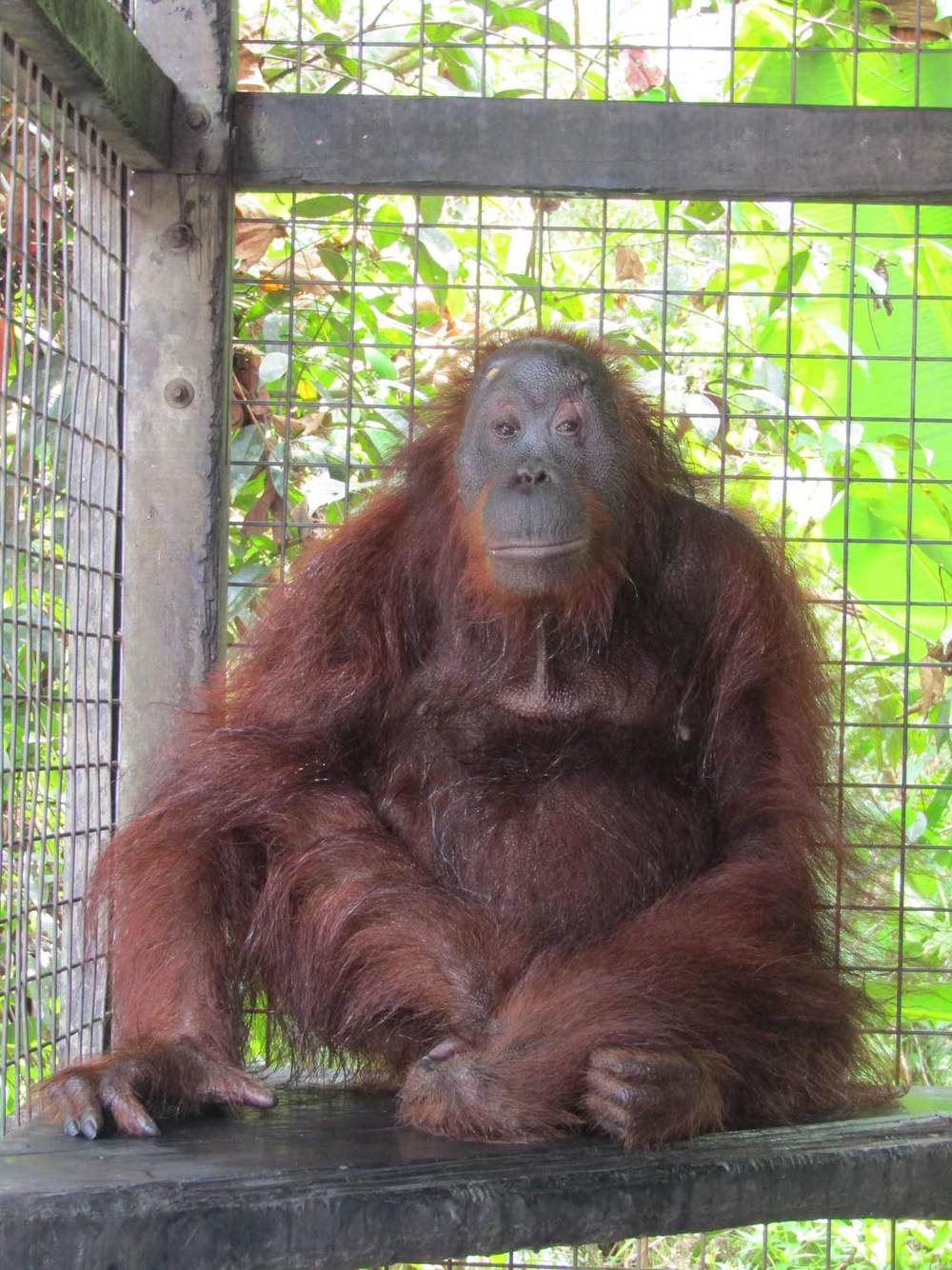
Esther the orangutan.
When the sun bear’s operation is over, Stephen said her rehabilitation will be monitored by Borneo vets, and Stephen will give advice as needed through video conferencing.
As part of Operation Sun Bear, Stephen will be taking a film crew to make a documentary about the project.
“We’ll be uploading stories every day onto Facebook and Instagram, for anyone who wants to keep up to date,” he said.
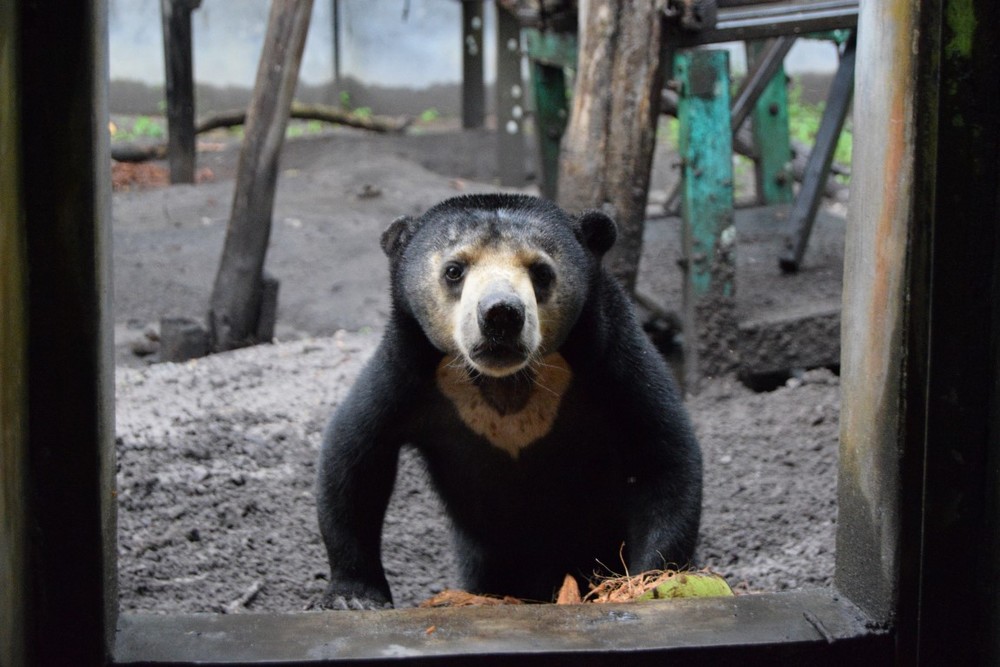
Hitam the sun bear.
“I think this project can get bigger, with the way the project is going and the passion behind it that’s attracting global attention.”
As well as continuing to be a locum vet, in the future, Stephen has a dream to set up a wildlife hospital in the Northern Rivers region.
“The idea has received extraordinary support from local people who have gifted land for the project,” he said. “It’s still in the early days of planning, but I’m working on it.
“Domestic pets have owners that can pay money to get them looked after, but what about wildlife? Who cares for these animals?
“Wildlife carers like WIRES and seabird rescue take in animals every day, and vets around the country provide free care for wildlife – it’s just part of what you do.
Stephen said the Northern Rivers region is the most densely populated region with wildlife in Australia.
“The numbers of animals coming into care is endless,” he said.
“Currumbin Wildlife Sanctuary have 11,000 admissions a year and one third of them are from the Northern Rivers region – and that’s just the ones that are lucky enough to be brought in.”
Being a vet has its challenges, and Stephen said “a vet is 21 specialists wrapped into one cover”.
“Every animal is different and being a vet is a tough job,” he said. “If you are a human doctor, you only have one animal species to know about, but a vet needs to know every single animal species and every discipline in medicine, from radiography to dentistry.
“As a vet, you need to think outside the box. Animals can’t talk to you and tell you where they have pain. If f they try and bite you, there’s a reason.
“Generally, owners are unreliable providers of information, so you need to work intuitively and run tests to work out what’s going on.
“Sometimes if I need to put an animal down, it’s in the animal’s best interests – they might be old and suffering and we offer them a quick and painless procedure.
“It’s the human’s emotions that get you – it’s bloody hard knowing the animal is ok, but dealing with the owner and their emotion is hard. You become part psychologist and human therapist too.”
If you would like to find out more about Operation Sun Bear and follow Stephen’s work, visit
https://orangutanfoundation.org.au/ or look for Operation Sun Bear Borneo on Facebook.
